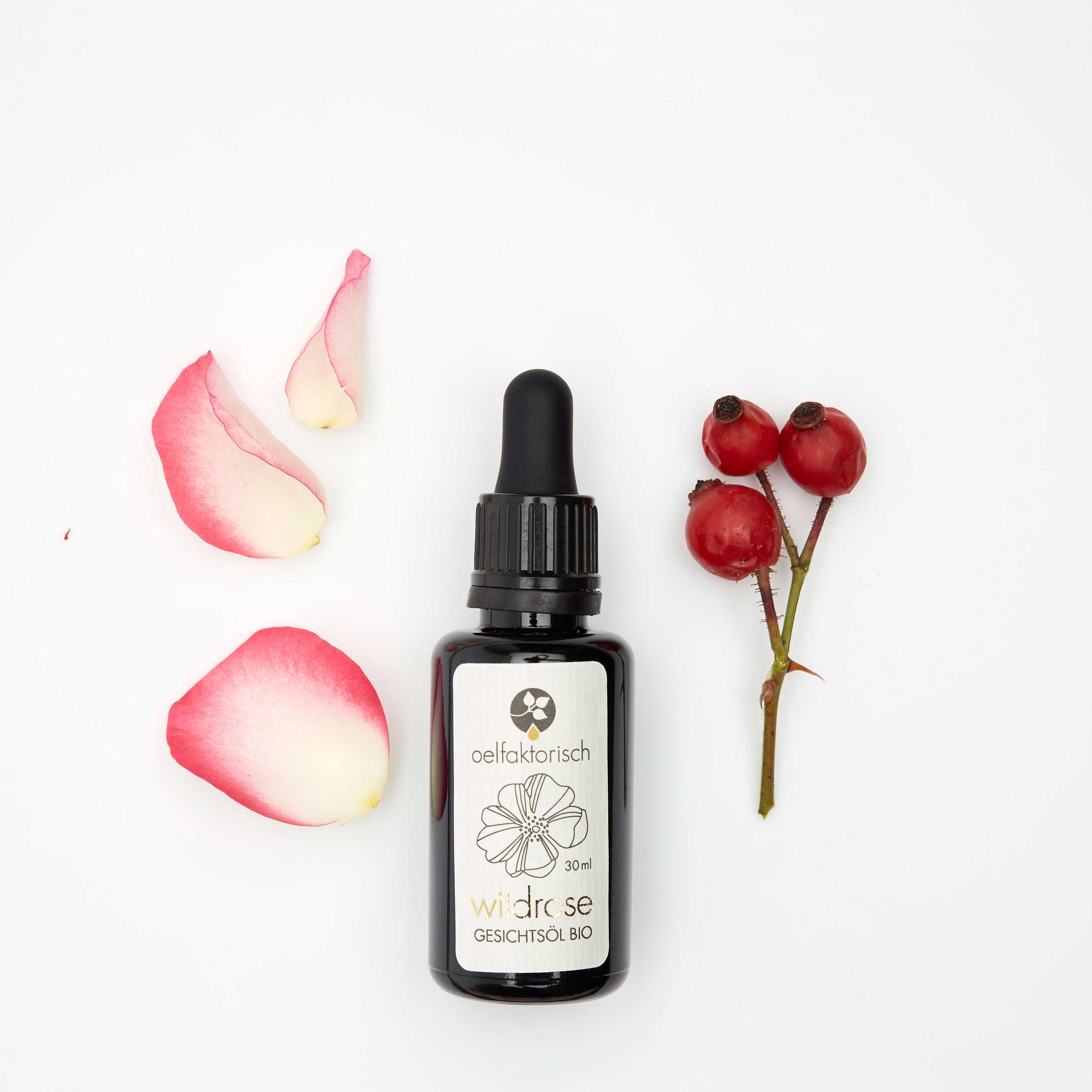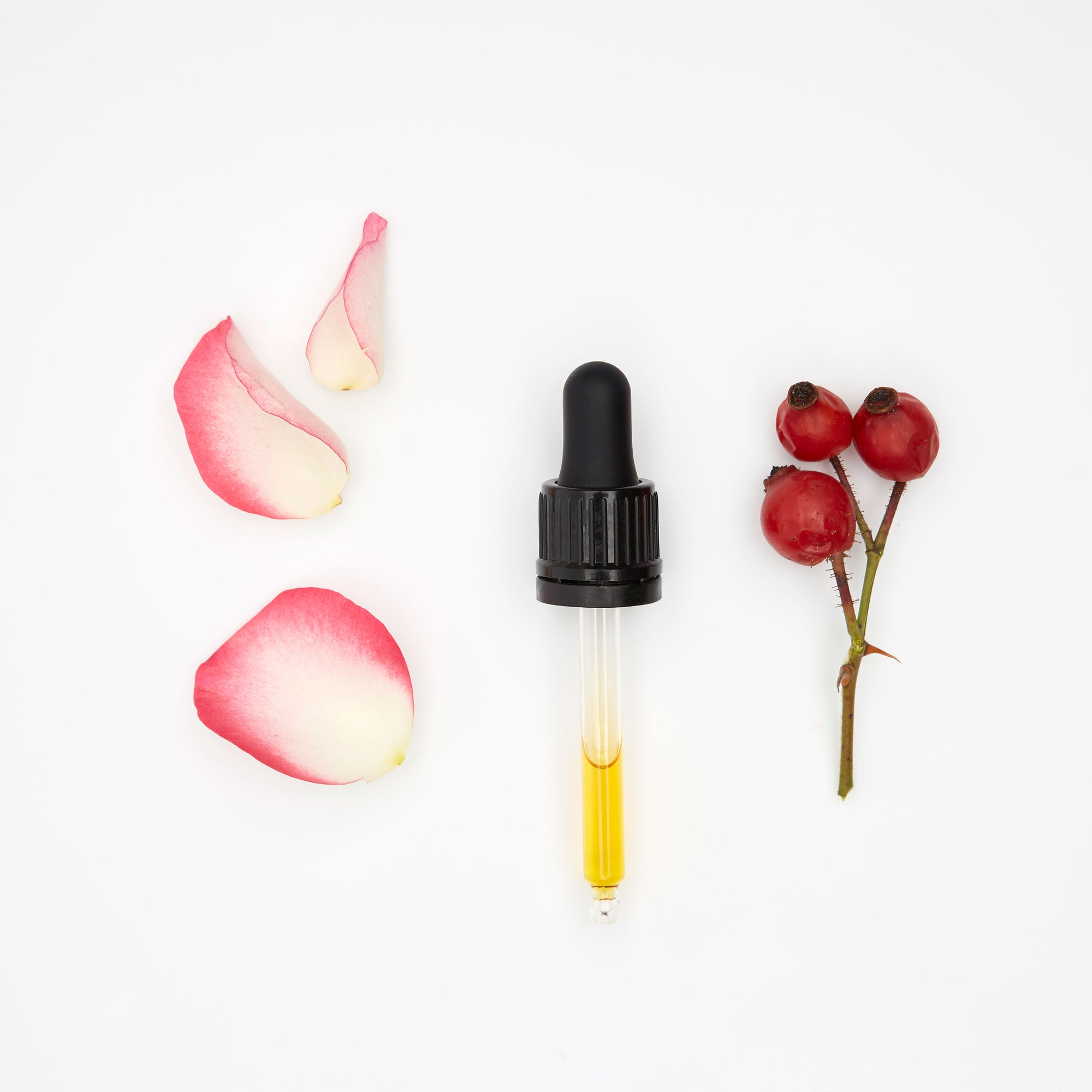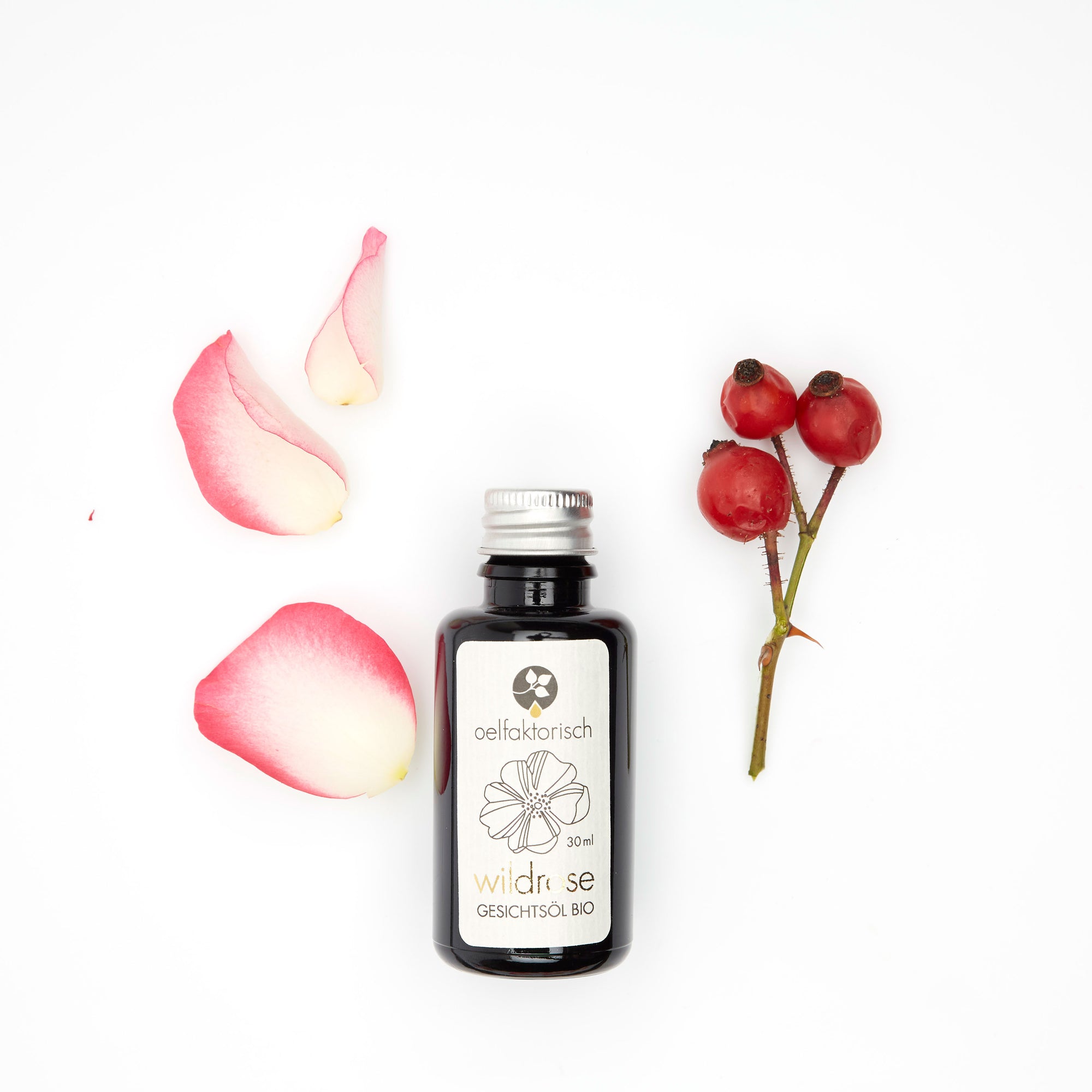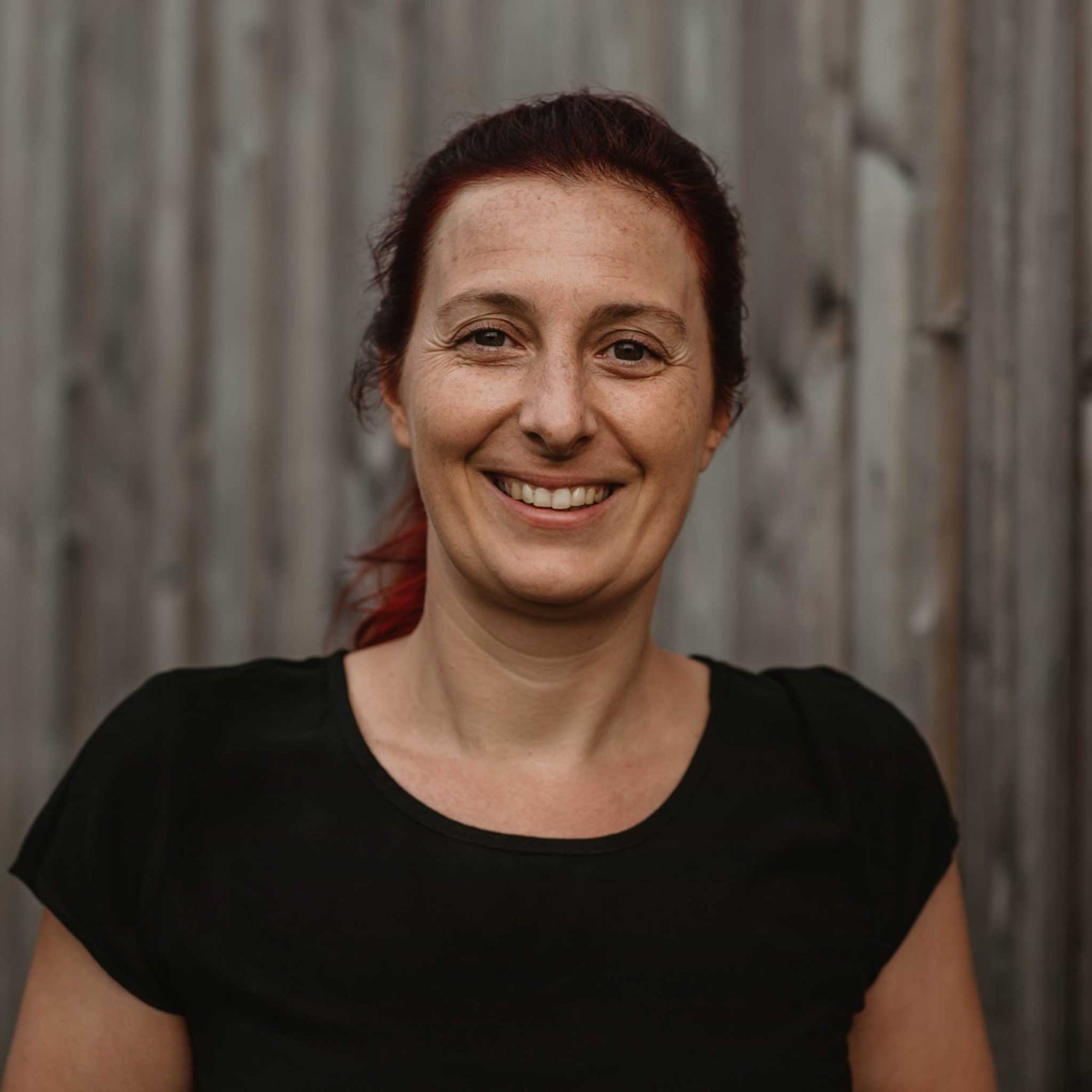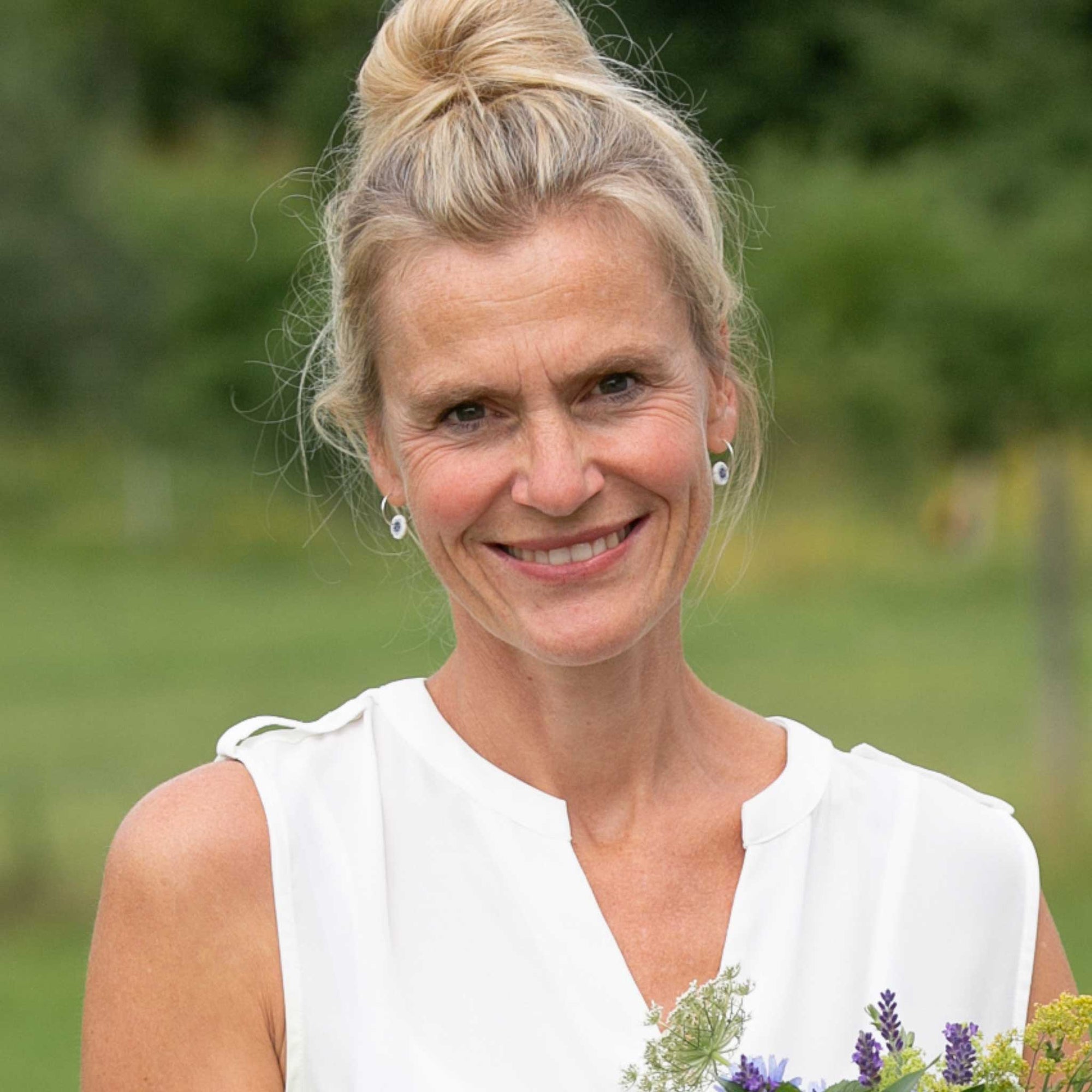
Im Gespräch mit
Tobias Kahrmann
Tobias ist Ökotrophologe, Experte für Naturkosmetik und Blogger. Er kennt sich aus in der Welt der Öle, Wildpflanzen und Heilkräuter und schreibt darüber leidenschaftlich gern auf seinem Instagramprofil
Uns hat er im Interview viel Spannendes über natürliche Gesichtspflege erzählt und verraten, wie man aus einem Aloe Vera-Blatt pure Feuchtigkeit gewinnt.
Eine Frage vorneweg: Woher kommt eigentlich Deine Leidenschaft für Naturkosmetik?
Mit 18/19 Jahren litt ich stark unter Akne und die Behandlung hat meine Haut damals leider arg strapaziert. Also habe ich angefangen, mich mehr mit Hautpflege und Kosmetik zu beschäftigen, um meine Haut wieder ins Gleichgewicht zu bringen. Bio-Lebensmittel und natürliche Stoffe waren mir auch damals schon wichtig und so war Naturkosmetik für mich die erste Wahl. Ein paar Jahre später habe ich dann einen Wildkräuterkurs besucht, in dem wir aus Öl und Bienenwachs eine ganz einfache Kamillensalbe hergestellt haben. Ich war begeistert davon, wie leicht sich Hautpflege selber machen lässt und habe im Internet und in Büchern nachgelesen und ganz viel ausprobiert. Seitdem beschäftige ich mich leidenschaftlich gerne mit Inhaltsstoffen, Hautpflege, Heilpflanzen, fetten Ölen und ätherischen Ölen. Es gibt da so viel zu entdecken! Einen Teil meiner Kosmetik mache ich nach wie vor gerne selber.
Der Sommer steht vor der Tür (hurra!). Natürliche Öle sind tolle Pflegeprodukte, aber als alleiniger Sonnenschutz nicht zu empfehlen. Warum?
Pflanzenöle können sehr viel für unsere Haut tun und stellen für mich das Herz guter Naturkosmetik dar. Sie können viel – aber nicht alles. Leider lese ich im Internet immer wieder, dass bestimmte Öle für ihren natürlichen Lichtschutzfaktor ausgelobt werden. Das mag unter Laborbedingungen vielleicht zutreffen, aber 1. wäre dieser LSF sehr niedrig, 2. deckt er nicht das gesamte UV-Spektrum ab und 3. kommt es beim Sonnenschutz immer auch auf die aufgetragene Menge an. Hinzu kommt, dass kaltgepresste Pflanzenöle viele ungesättigte Fettsäuren und empfindliche Fettbegleitstoffe enthalten, die durch UV-Strahlung zerstört bzw. in hautschädliche Abbaustoffe umgewandelt werden. Pflanzenöle können die Haut stärken und nähren, ersetzen aber keinen Sonnenschutz.
Was empfiehlst Du zum Hautschutz vor schädlicher UV-Strahlung?
Für mich setzt sich Sonnenschutz aus mehreren Elementen zusammen:
- starke Mittagssonne und (zu) lange Aufenthalte in der Sonne vermeiden
- je nach Hauttyp die Eigenschutzzeit der Haut (15-60 Min.) berücksichtigen und nicht überschreiten
- wenn möglich, Sonnenbrille, Hut und schützende Kleidung tragen
- Sonnencreme auftragen – und zwar ausreichend bzw. dem Aufenthalt in der Sonne angepasst (die meisten Menschen verwenden leider zu wenig Sonnencreme – es sollte mind. die doppelte Menge der Tagescreme sein)
Naturkosmetik Sonnencremes hatten bis vor einigen Jahren einen schlechten Ruf, weil sie meist viel fettiger waren und einen weißen Film auf der Haut hinterließen. Dies hat sich zum Glück geändert und es gibt mittlerweile sehr viele tolle Produkte auf dem Markt für die verschiedensten Bedürfnisse: LSF 15-50+, mit und ohne Duft, getönt, als leichtes Fluid… Die Chancen sind groß, ein für sich passendes Produkt zu finden. Hier hilft es, vorab ein paar Testberichte zu lesen, um sich einen ersten Eindruck zu verschaffen
Du bist erklärter Fan von Wildrosen/Hagebuttensamen-Gesichtsöl. Was macht es für Dich so wertvoll?
Wildrosen- bzw. Hagebuttensamenöl ist für sich genommen schon ein richtiges kleines Wirkstoffpaket, vollgepackt mit wertvollen essentiellen Fettsäuren (sehr viel Omega 3 & 6!) und tollen Fettbegleitstoffen (Carotinoide, Vitamin E). Mir persönlich hat es immer sehr bei Unreinheiten und Entzündungen geholfen, am liebsten gemischt mit dem beruhigenden und schützenden Jojobaöl. Ich habe sensible Haut und brauche eher weniger und reduziertere Hautpflegeprodukte. Spannend finde ich, dass Wildrosenöl auch trockene und fahle Haut bei der Regeneration unterstützt. Es ist schon sehr lange eins meiner absoluten Lieblingsöle!
Das Produkt könnte dich interessieren

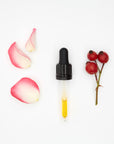
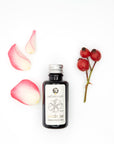

„Körperöle verstopfen auf Dauer die Poren der Haut.“ Dieses Gerücht hält sich hartnäckig. Was sagst Du dazu?
Je nach Hauttyp und -zustand kann eine sehr fetthaltige und/oder falsche Pflege zwar Unreinheiten und Pickel begünstigen. Es kommt dabei aber immer auf das Öl und die Menge an. Grundsätzlich sind Pflanzenöle für alle Hauttypen und -zustände geeignet. Bei fettiger Haut empfehlen sich eher „leichte“ Öle (wie Traubenkern- oder Hanföl), trockene Haut dagegen bracht mehr Schutz in Form von Ölen und Fetten, die reich an gesättigten Fettsäuren sind (wie Shea- oder Kakaobutter).
Unsere Haut verändert sich im Laufe des Lebens und auch mit den Jahreszeiten. Persönlicher Lebensstil, Ernährung, Stress, Hormone – alles kann mehr oder weniger eine Rolle spielen und sollte neben der Hautpflege mitbedacht werden.
Wer seine Pflegeroutine von Cremes & Co. auf Öle und Hydrolate umstellt, empfindet seine Haut anfangs manchmal als zu trocken. Wie gewöhnt man sich leichter um?
Feuchtigkeit ist hier ein großes Stichwort! Fett allein reicht zur Hautpflege leider nicht aus, denn „trockene Haut“ ist immer auch feuchtigkeitsarme Haut. Ein Toner (z. B. in Form eines reinen Pflanzenwassers/Hydrolats) ist für mich Pflicht, ich ergänze gerne auch noch mit einem leichten (selbstgemachten) Hyaluron-Serum für noch mehr Feuchtigkeit. Danach trage ich ein Öl auf, das schließt die Feuchtigkeit gut ein.
Bei der Umstellung der Pflegeroutine empfehle ich immer, sich schrittweise heranzutasten, um Frust und Enttäuschung vorzubeugen. Bei zu plötzlichen Wechseln kann die Haut nämlich mit Rötungen, Unreinheiten und Trockenheit reagieren. Also am besten nicht gleich alle Produkte auf einmal austauschen, sondern nach und nach in die Routine integrieren. Und geduldig sein, denn die Haut braucht ein paar Wochen, um sich umzugewöhnen.
Dein ultimativer Tipp, wenn die Haut mal einen echten Feuchtigkeitskick benötigt?
Aloe Vera! Da geht für mich nichts drüber. Diese Pflanze ist so reich an feuchtigkeitsspendenden, hautberuhigenden, ausgleichenden Stoffen – das kriegt keine Creme aus dem Kosmetiklabor so hin!
Idealerweise hat man ein frisches Blatt zur Hand, entweder von der eigenen Pflanze oder aus dem Biomarkt. Bei der Entnahme des Gels und der Zubereitung gibt es jedoch ein paar Dinge zu beachten und man sollte sich davor etwas schlau machen.
Alternativ kann man sehr gut ein hochwertiges Aloe-Vera-Gel kaufen. Reines, unkonserviertes Aloe-Vera-Gel (auch „Saft“ genannt) ist nach dem Öffnen leider nur wenige Tage im Kühlschrank haltbar – es ist eben ein frisches Produkt. Man kann es aber sehr gut portionsweise im Eiswürfelbehälter einfrieren und dann nach Bedarf entnehmen. Mit Konservierungs- und Verdickungsmitteln versetze Produkte sind anwendungsfreundlicher – hier am besten auf ein Naturkosmetik-Siegel und vertrauenswürdige Hersteller achten.
„Viel hilft viel“ oder „weniger ist mehr“: Wie stehst Du in Bezug auf Gesichtspflege dazu?
Bei mir ist weniger tatsächlich mehr, denn meine Haut meldet mir das ganz schnell, wenn es mal wieder „zu viel des Guten“ war. Wobei „wenig“ wahrscheinlich auch relativ ist. Ich benutze immerhin 5-6 verschiedene Produkte zur Gesichtspflege am Tag: morgens nur eine Tagescreme, da soll es schnell gehen und das reicht mir auch; abends Reinigungsmilch, Toner, Serum und Öl. Ich mag das einfach und meiner Haut tut es gut. Ich nehme mir abends auch immer gerne die Zeit, mein Gesicht in Ruhe zu pflegen und ein bisschen runter zu kommen. Wenn ich im Sommer mehr draußen bin, verwende ich tagsüber noch eine Sonnencreme.
Letztlich kommt es aber immer auf die eigenen Bedürfnisse und Gewohnheiten an. Manche Menschen mögen es schnell und unkompliziert – am besten nur eine Creme und gut ist. Andere hingegen lieben die Abwechslung und probieren auch gerne mal etwas aus. Jedoch sollte sich niemand gedrängt fühlen, besonders viele Produkte verwenden zu müssen, nur weil die Werbung dies suggeriert. Ich sage immer: „Lerne Deine Haut kennen, finde heraus, was ihr gut tut und was Dir gefällt.“ Das hat für mich auch ganz viel damit zu tun, sich mit sich selber zu befassen, auf die eigenen Bedürfnisse zu achten, sich Zeit für sich zu nehmen. Hautpflege kann auch eine Form der Selbstfürsorge sein.
Danke dir, Tobias, für das Gespräch
Interview vom April 2021
Weitere Blogartikel
Erika Fleischer • Doula birth attendant, systemic and psychological consultant, mental trainer and aroma practitioner
Erika Fleischer is a doula birth attendant, systemic and psychological consultant, mental trainer and aroma practitioner. Especially in the last few years, her work has...
Nina Gerhard • naturopath and blogger
The rose is a real work of art. The queen of flowers is not only a visual symbol of grace and elegance, her inner values...

